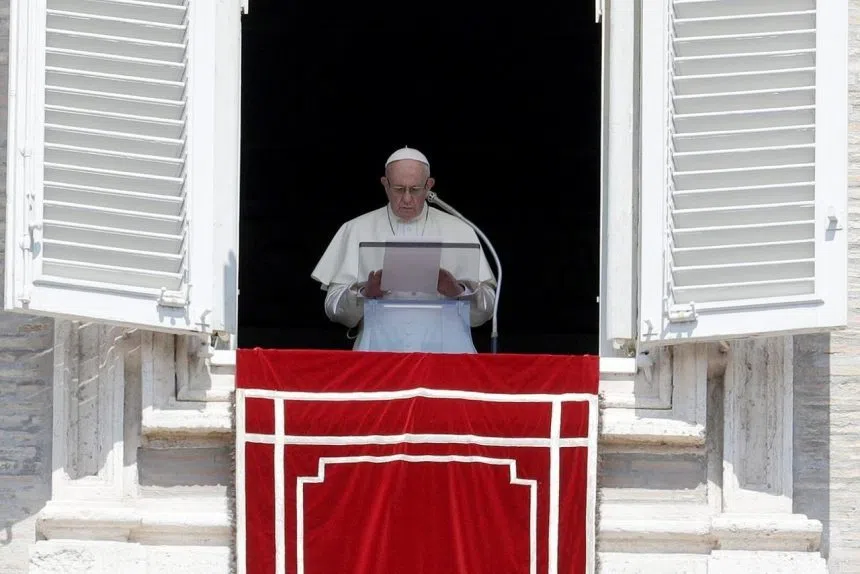Three busloads of people from the Roman Catholic Archdiocese of Regina are Edmonton-bound this weekend for a chance to see the pope.
Pope Francis is set to embark on a six-day visit to Canada this weekend, following an apology he delivered in Rome to victims of Canada’s residential school system, which was largely overseen by the Catholic Church.
Lisa Polk, director of pastoral services for the Regina archdiocese, said they expect about 165 people to make the trip on Sunday to Edmonton, with most travelling by bus together and some taking their own vehicles.
“Tensions are high with making sure we get everybody there in a good way, and with dignity, and on time,” Polk said.
The delegation is mostly made up of residential school survivors, she said, each of whom will be accompanied by a support person. Polk said the archdiocese gave priority to any survivors who were interested in making the trip.
Only six staff members from the church will be travelling with the group.
A range of emotions are being felt, she said, as the group is less than two days away from departure.
“We’ve heard from people who are just excited and joyful about this, and then there are people (with) frustrated emotions. They’re feeling triggered from past events in their life,” Polk shared.
“We’re really just doing our best to honour whatever those emotions are, and form strong relationships and walk together in a good way on this journey.”
Polk said she heard from organizers in Edmonton that their group is just one of many making the journey to see Pope Francis in person this weekend.
The group’s itinerary includes a visit to a former residential school on Monday and two events on Tuesday: a Mass at Commonwealth Stadium and another event at Lac Ste. Anne.
Polk’s hopes, though, extend beyond the weekend itself. She said the Regina archdiocese has been focused on forming relationships with Indigenous people and residential school survivors for several years.
She said her hopes are high that upon returning from Edmonton, those relationships will continue to grow and lead to deeper connections between Indigenous and non-Indigenous people.
“It’s those relationships that we would like to see continue when we return,” Polk said. “We have lots of work to do.”
That work, she said, includes making reparations and helping to return culture, language and ceremony to Indigenous communities and Treaty 4 territory.
Polk said it’s work the church would love to be part of.











